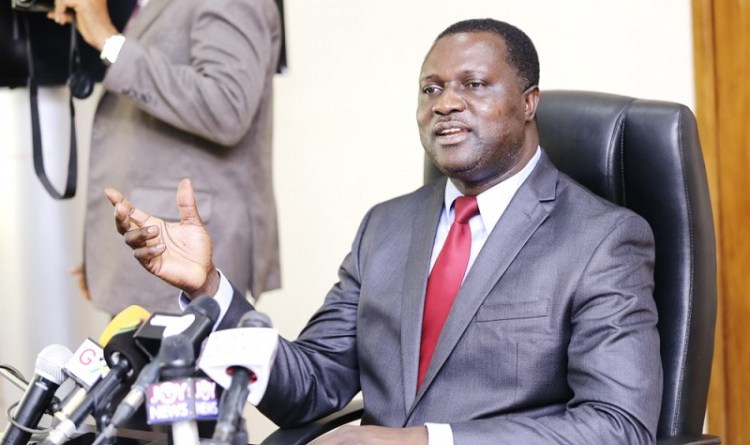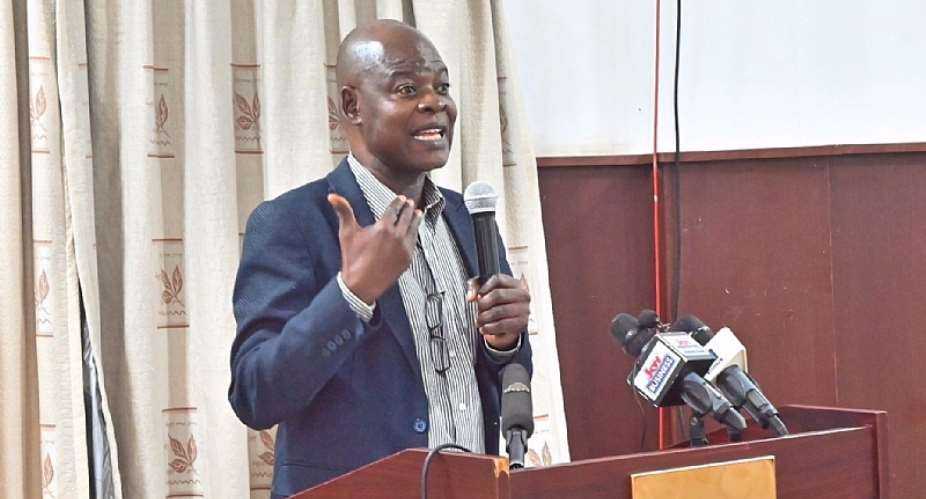
The Deputy Chairman-General Services, National Commission for Civic Education (NCCE), Victor K. Brobbey has decried the erosion of ethical standards in the country.
He believes corruption is no longer just a governance problem but could be rooted deeply in culture.
He made this observation at a national dialogue on the rule of law and fight against corruption organised in partnership with the German development organisation – GIZ – with the theme: ‘Empowering citizens, promoting accountability’.
So pervasive is the canker that Mr. Brobbey lamented a growing acceptance of internet fraud, Sakawa, ritual money practices, as well as the preponderance of rogue religious leaders dominating the airwaves.
The inordinate celebration of material wealth has eaten into the fabric of society – such that rogue religious leaders exploit this weakness and promise instant wealth through magical and manipulative spiritual means which see Ghanaians flocking in droves seeking such.
“This has only conflated the distinction between appropriate moral behaviour and immoral behaviour,” he added. “We cannot build a just society when our gatekeepers themselves begin to mirror the very symptoms of a corrupt system. When our moral fabric is under siege, the rule of law becomes a victim”.
Consequently, he noted, citizens lose trust in institutions and justice is perceived as a commodity to be bought. The deputy-chair NCCE said, consequently, NCCE has rolled out a series of public educational engagements which include the Whittle-Lewis Act and social media campaigns on the negative effects of corruption.
Despite numerous efforts to combat corruption, it continues to be widespread – affecting all levels of society and jeopardising our democratic achievements.
The country’s ranking on the CPI, Corruption Perception Index highlights a critical need for collective action. Ghana’s declining position on Transparency International’s CPI is testament of a need to critically address the erosion of morality and its decline.
This decline, he notes, shows that citizen’s trust in the state’s ability to fight corruption seems to be eroded – underscoring the need for a national dialogue.
National Commission for Civic Education (NCCE) is an independent, non-partisan governance institution responsible for developing and maintaining a democratic culture and responsible citizenship within the context of principles and objectives set out in the 1992 Constitution.
The Constitution makes civic education an important strategy for creating awareness on the main values of democratic governance, instilling the spirit of patriotism and enhancing citizens’ participation in governance.
It is within the Commission’s purview to gauge the nation’s moral fibre and ensure the citizenry imbibe tenets of probity and accountability – which is sine qua non for practicjng democracy in the country and beyond.
The post Editorial: NCCE tackles falling moral standards in national life appeared first on The Business & Financial Times.
Read Full Story
















Facebook
Twitter
Pinterest
Instagram
Google+
YouTube
LinkedIn
RSS